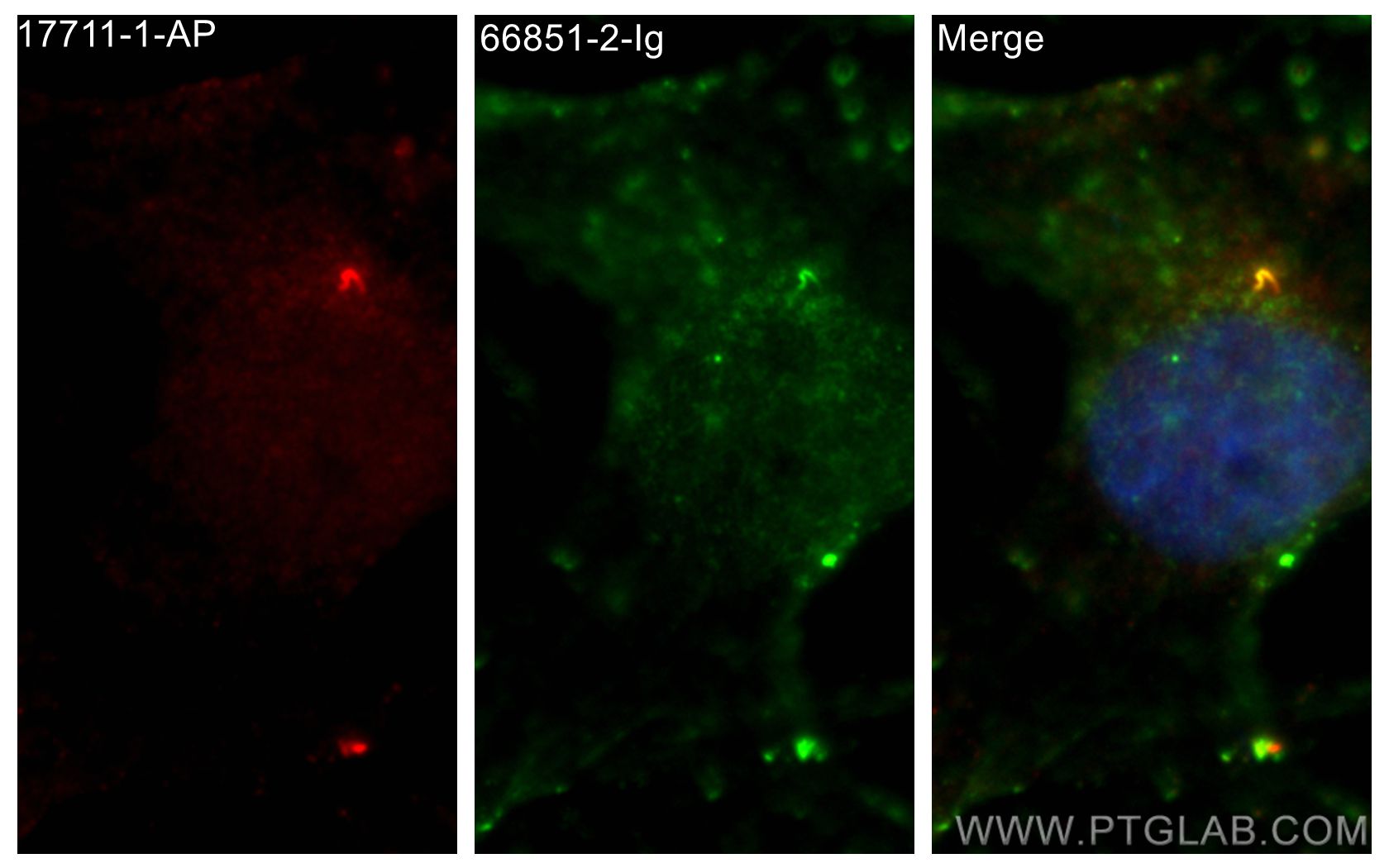Anticorps Monoclonal anti-SMO
SMO Monoclonal Antibody for IF/ICC, ELISA
Hôte / Isotype
Mouse / IgG1
Réactivité testée
canin, Humain
Applications
IF/ICC, ELISA
Conjugaison
Non conjugué
CloneNo.
2A11A10
N° de cat : 66851-2-Ig
Synonymes
Galerie de données de validation
Applications testées
| Résultats positifs en IF/ICC | cellules MDCK, |
Dilution recommandée
| Application | Dilution |
|---|---|
| Immunofluorescence (IF)/ICC | IF/ICC : 1:400-1:1600 |
| It is recommended that this reagent should be titrated in each testing system to obtain optimal results. | |
| Sample-dependent, check data in validation data gallery | |
Informations sur le produit
66851-2-Ig cible SMO dans les applications de IF/ICC, ELISA et montre une réactivité avec des échantillons canin, Humain
| Réactivité | canin, Humain |
| Hôte / Isotype | Mouse / IgG1 |
| Clonalité | Monoclonal |
| Type | Anticorps |
| Immunogène | SMO Protéine recombinante Ag25861 |
| Nom complet | smoothened homolog (Drosophila) |
| Masse moléculaire calculée | 787 aa, 86 kDa |
| Numéro d’acquisition GenBank | BC009989 |
| Symbole du gène | SMO |
| Identification du gène (NCBI) | 6608 |
| Conjugaison | Non conjugué |
| Forme | Liquide |
| Méthode de purification | Purification par protéine G |
| Tampon de stockage | PBS with 0.02% sodium azide and 50% glycerol |
| Conditions de stockage | Stocker à -20°C. Stable pendant un an après l'expédition. L'aliquotage n'est pas nécessaire pour le stockage à -20oC Les 20ul contiennent 0,1% de BSA. |
Informations générales
Smoothened (SMO) is a G protein-coupled receptor that is a component of the hedgehog (Hh) signaling pathway and is conserved from flies to humans. The Hh pathway plays central roles in animal development and stem-cell function. Defects in Hh signalling lead to birth defects and cancer in humans. Expressed on the primary cilium, SMO interacts with the patched protein, a receptor for Hh proteins.
Protocole
| Product Specific Protocols | |
|---|---|
| IF protocol for SMO antibody 66851-2-Ig | Download protocol |
| Standard Protocols | |
|---|---|
| Click here to view our Standard Protocols |


